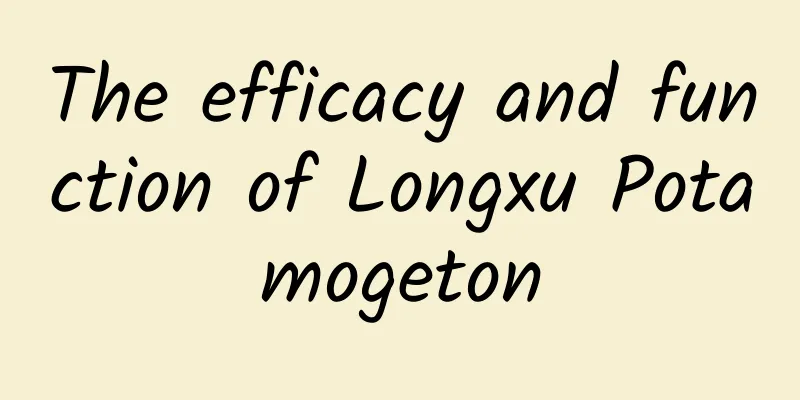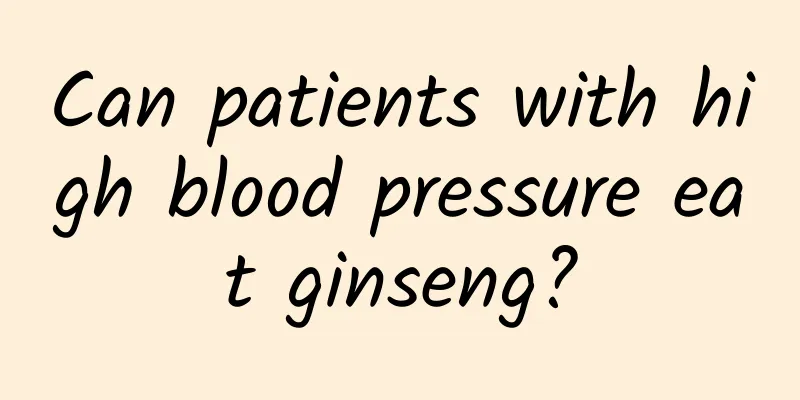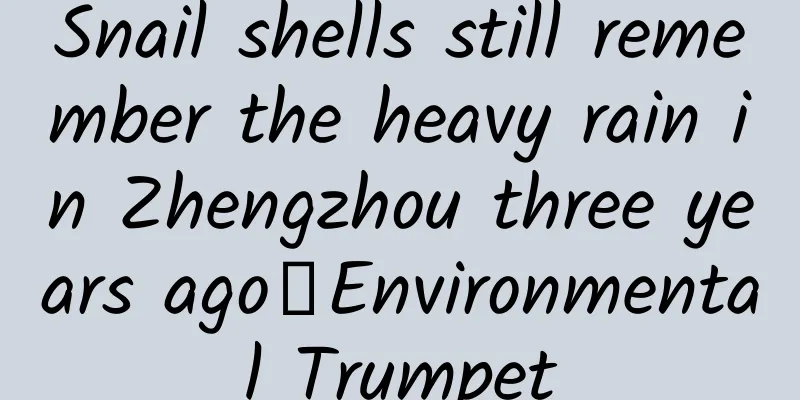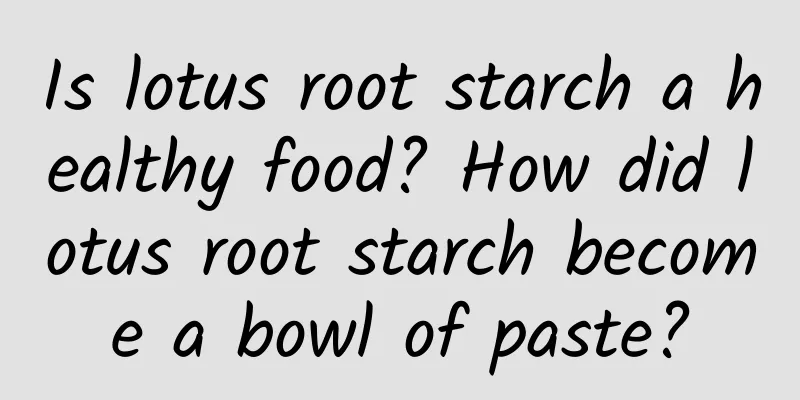This thing that I was often forced to eat by the elderly when I was a child actually has miraculous healing effects
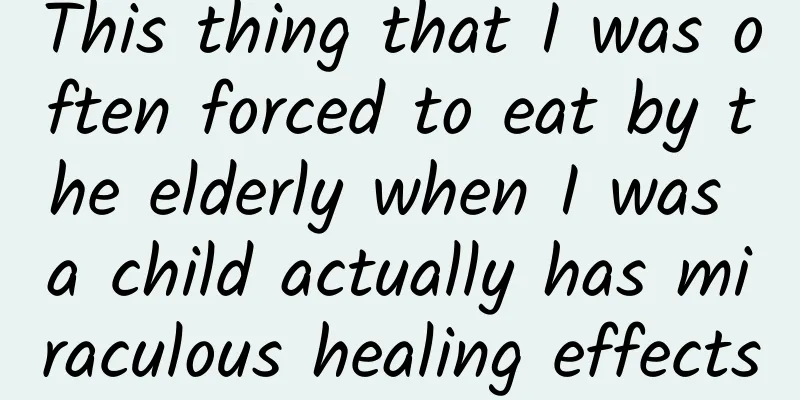
|
Zingiber officinale is a medicinal herb that grows in shady and wet places in valleys or is cultivated in Jiangsu. It is the rhizome of the Zingiber officinale plant of the Zingiberaceae family. So what are the effects and functions of Luhe? What are the usage, dosage and contraindications of Luhe? Let's follow Kangwang editor to learn about the effects, functions, usage, dosage and contraindications of Luhe. Introduction of Luhe [Other names] Jupu, Jiacao, Weiqi, Xianju, Yuqu, Bailuhe, Fushu, Puju, Yanghuo, Yangyou, Mountain ginger, Guanyinhua, Lianhua ginger, Gaoliangjiang, wild ginger, Tulikaifa, wild old ginger, liangjiang, wild mountain ginger, wild ginger [Source] Medicinal material source: The rhizome of the ginger plant Zingiber officinale. Harvesting and storage: Harvested in summer and autumn, used fresh or sliced and sun-dried. [Original form] Perennial herb, 0.5-1m high. The rhizome is thick, cylindrical and light yellow. Petiole 0.5-1.7cm long or sessile; ligule membranous, 2-lobed, 0.3-1.2cm long; leaf blade lanceolate-elliptic or linear-lanceolate, 20-37cm long, 3-6cm wide, glabrous on the surface, glabrous or sparsely pubescent on the back; midrib thick, lateral veins pinnate, nearly parallel. The spike inflorescence is elliptical, 5-7cm long, arising alone from the rhizome. The peduncle is absent to up to 17cm long, covered with oblong scaly sheaths; the bracts are imbricate, elliptical, reddish-green, with purple veins; the calyx is tubular, 2.5-3cm long, split on one side, the corolla tube is 4-5cm long, the lobes are lanceolate, 2.7-3cm long, about 7mm wide, and light yellow; the lip is ovate, 3-lobed, the middle lobe is about 2.5cm long and 4mm wide; the anther and connective appendages are each about 1cm long. The capsule is obovate and splits into three parts when ripe. The inside of the peel is bright red; the seeds are black and covered with white aril. Flowering period is August to October. The efficacy and function of loquat Promote blood circulation and regulate menstruation; eliminate cough and relieve cough; detoxify and reduce swelling. It is mainly used to treat irregular menstruation, dysmenorrhea, traumatic injuries, cough and asthma, carbuncle, swelling and pus, and scrofula. Usage and Dosage of Lohe For internal use: decoct in water, 6-15g; or grind into powder; or juice of fresh product. For external use: take appropriate amount and mash it for application; use the mashed juice for gargling or eye application. Taboos of Lohe Avoid iron. The recipe of Luhe ①To treat finger inflammation: add a little salt to the fresh rhizome of the Chinese calamus, mash it and apply it externally. (Commonly used herbal medicines among Zhejiang folks) ②Treatment of cervical lymph node tuberculosis: 2 liang of fresh rhizome of Polygonum multiflorum and 1 liang of fresh rhizome of Belamcanda chinensis. Decoction in water. (Commonly used herbal medicines among Zhejiang folks) ③ For sores in the throat, mouth and tongue: Soak lotus root in wine for half a day, and gargle with the juice. (Behind the Elbow) ④ Treat sudden loss of voice and inability to speak due to choking: mash the root of lotus root, mix with wine, squeeze it, and drink the juice. (《Filling the vacancies in the rear》) ⑤To treat squinting caused by distracting objects: pound the roots of white lotus and squeeze out the juice, and focus it on the eyes. "Saint's Prescription" ⑥For the treatment of typhoid fever, seasonal weather, febrile diseases, headache, high fever, and strong pulse, for the first day: pound the roots and leaves of the raw lotus together, squeeze out the juice, and take three to four liters. (《Filling the vacancies in the rear》) ⑦Treatment of lobar pneumonia: 3 qian of rhizome of Hedera paniculata and 1 liang of Houttuynia cordata. Decoction in water. (Commonly used folk herbs in Zhejiang)⑧ Treat delayed menstruation: chop the root of the Chinese lotus into small pieces, boil it to obtain two liters, and drink it on an empty stomach with wine. (Experienced Prescription) ⑨To treat injuries from falls: boil 50 cents to 1 ounce of the rhizome of the herb in water and drink it. Or dry it in the sun, grind it into powder, and take it with rice wine, three to five cents each time. (Commonly used herbal medicines among Zhejiang folks) ⑩ Treat vomiting blood and hemorrhoidal bleeding: Take a handful of Helianthus annuus root, mash it and drink three liters of juice (Shi Hou Fang) |
<<: Traditional Chinese medicine says: This medicine is indispensable for men throughout their lives
>>: Breast cancer, esophageal cancer, lymphoma are all cured by this medicine
Recommend
What is the effect of deer antler medicinal wine on rheumatoid arthritis?
Rheumatoid arthritis is a disease with a high inc...
The most tricky kind of meat in supermarkets, I don't recommend buying it, it's a waste of money
In the past two years, the price of pork was rela...
What kind of bird is the most powerful "monster" in Journey to the West, the Garuda?
When it comes to the most powerful monster in Jou...
Contagious! Rare disease breaks out in the country, over 80 people infected
According to Indian media reports on the 12th, an...
Does Niuhuang Xiaoyan Tablet have any side effects?
There are a wide variety of medicines in the phar...
Longjing, Maojian, Tieguanyin...How did the various names of tea come from?
Mixed knowledge is the cure for confusion!...
The efficacy and function of water stachys root
Do you know about stachys root? It is a common me...
The efficacy and function of Carpinus multivenus
As a traditional Chinese medicinal material, Carp...
The efficacy, effects and edible methods of Herba Potentillae
Herba Potentillae Discolor is actually a medicina...
The efficacy and function of Paulownia fruit
In modern life, everyone is very familiar with va...
Watch! What will the Shenzhou 14 astronauts do during these days of “business trip”?
With the successful launch of the Shenzhou XIV ma...
The moon always faces us. Is it rotating? Are there other celestial bodies like this in the universe?
This is a question that many people are puzzled a...
The super cool starry sky "palette" in the hands of the cosmic painter, you may have never seen it before
Author | Feng Ziyang Review | Dong Chenhui Editor...
Ministry of Culture and Tourism: On October 1, 2018, the National Day, the country received 122 million domestic tourists and earned 103 billion yuan
Based on data reported and provided by local tour...
"Who says only those standing in the light are heroes?" Approaching the "underground dragon" - China's giant shield aircraft
When it comes to major national weapons What can ...
